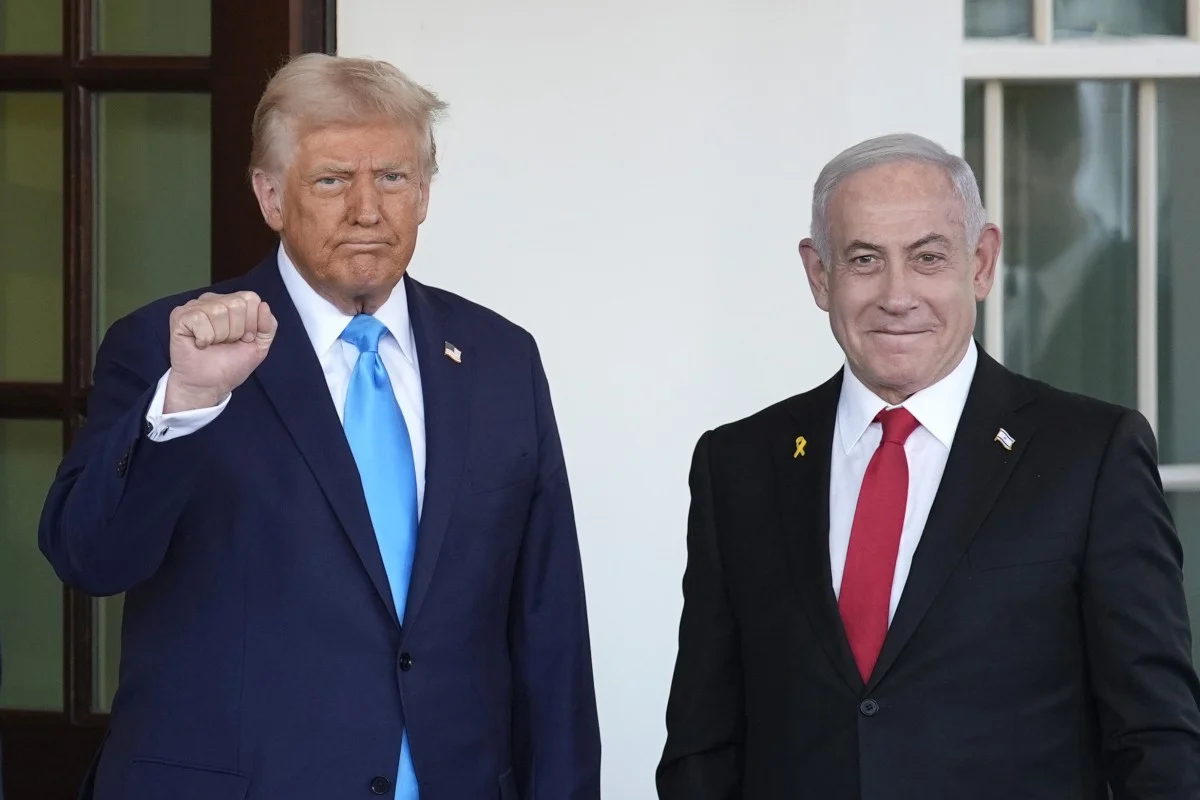Trump’s Gaza Plan Disrupts Saudi-Israel Relations, Analysts Warn
In a move that analysts say could destabilize the Middle East, former U.S. President Donald Trump’s controversial plan for Gaza has derailed the possibility of Saudi Arabia normalizing relations with Israel. Experts argue that the plan, which proposes the redevelopment of Gaza and the forced relocation of its Palestinian population, has sparked intense backlash in the Arab world, particularly within Saudi Arabia. This has raised serious concerns regarding future peace talks and the broader stability of the region.
A Plan That Risks Saudi-Israeli Diplomacy
The plan, announced by Trump alongside Israeli Prime Minister Benjamin Netanyahu, proposed a significant change to Gaza’s future, including the displacement of its over two million Palestinian residents. This has caused major anger across the Arab world, making it nearly impossible for Saudi Arabia to entertain normalization with Israel. James Dorsey, a Middle East analyst from the National University of Singapore, emphasized that such a plan “shut the door” on Saudi recognition of Israel, an outcome that has long been viewed as the “holy grail” of Middle Eastern diplomacy.
For years, Saudi Arabia has maintained a delicate balancing act in the region, navigating its interests with Israel, while also upholding its leadership role in the Muslim world. This position is heavily tied to its support for Palestinian statehood, a cause central to its legitimacy. The proposal has sparked internal debate on how the kingdom can maintain its diplomatic objectives without sacrificing Palestinian interests.
Saudi Arabia’s Response: A Clear Rejection
In the immediate aftermath of Trump’s remarks, Saudi Arabia issued a firm statement rejecting the idea of displacing Palestinians from their homeland. The Saudi Foreign Ministry took to social media to assert that it would not consider any ties with Israel without the creation of a Palestinian state. This rapid and public rejection signaled a clear departure from the tentative talks that had been underway, which had been aimed at normalizing relations with Israel.
Analysts pointed out that Saudi Arabia’s response, while politically calculated, also underscores its deep commitment to the Palestinian cause, which has become an increasingly sensitive issue for the Kingdom. While Saudi Arabia has strategic interests with Israel, including countering Iran’s influence and diversifying its economy, the Palestinian question remains a significant roadblock.
The Economic and Security Consequences for Saudi Arabia
Saudi Arabia’s decision to halt any further normalization talks with Israel also comes at a time when it is heavily invested in a post-oil economic transition. With Vision 2030, led by Crown Prince Mohammed bin Salman, the Kingdom seeks to reduce its dependency on oil revenues by attracting foreign investments and boosting its tourism industry. But instability in the region, particularly related to Gaza, could hurt these aspirations.
Moreover, if millions of displaced Palestinians are forced into neighboring countries like Jordan and Egypt, it could destabilize the region and threaten the security of Saudi Arabia’s borders. Experts warn that Saudi Arabia cannot afford further upheaval, especially with the volatility in nearby states already posing significant risks to its long-term stability.
A Complicated Relationship with Washington
Saudi Arabia has long been a key ally of the United States, particularly in defense matters, but the latest developments have put the Kingdom in a delicate position. While it continues to rely on U.S. military and political support, especially for its security against Iran, Saudi officials are increasingly wary of being pressured into concessions that could harm its image in the Arab world.
Some experts, such as Andreas Krieg from King’s College London, suggest that Saudi Arabia will not simply “bow to U.S. pressure” on normalization with Israel, particularly when it comes to Palestinian statehood. Riyadh has long emphasized the importance of Palestinian rights and sovereignty as part of any peace agreement with Israel. This is seen as a vital bargaining chip for Saudi Arabia in both the Arab and Muslim worlds.
What’s Next for Saudi-Israeli Relations?
While the U.S. and Israeli leadership may have hoped that Trump’s plan would accelerate the normalization process, Saudi Arabia’s firm stance suggests that significant challenges lie ahead. The Saudis have made it clear that they will not sacrifice Palestinian interests in exchange for improved relations with Israel. However, as regional dynamics evolve, particularly with the ongoing threat from Iran, Saudi Arabia may have to find a way to navigate the complexities of its foreign policy without alienating its allies.
As the situation unfolds, Saudi Arabia’s next steps will be crucial in determining the future of its relationships with both Israel and the U.S. For now, the Gaza plan has posed an insurmountable obstacle to peace in the region. The Kingdom’s ability to maintain a strategic balance between its diplomatic goals and regional stability will be key in the coming months.
Conclusion: A Turning Point for Middle Eastern Diplomacy
In summary, Trump’s Gaza plan has undoubtedly thrown a wrench into the gears of Saudi-Israeli diplomacy, pushing Saudi Arabia to take a hard stance on the Palestinian issue. As the region navigates these complicated tensions, it remains clear that peace in the Middle East will require careful negotiation, respect for Palestinian rights, and, most importantly, a willingness to build trust between all parties involved. Whether Saudi Arabia and Israel can find common ground remains uncertain, but one thing is clear: the road to normalization just got a lot more difficult.
Do follow gulf magazine on Instagram.
for more information click here
Gulf magazine



